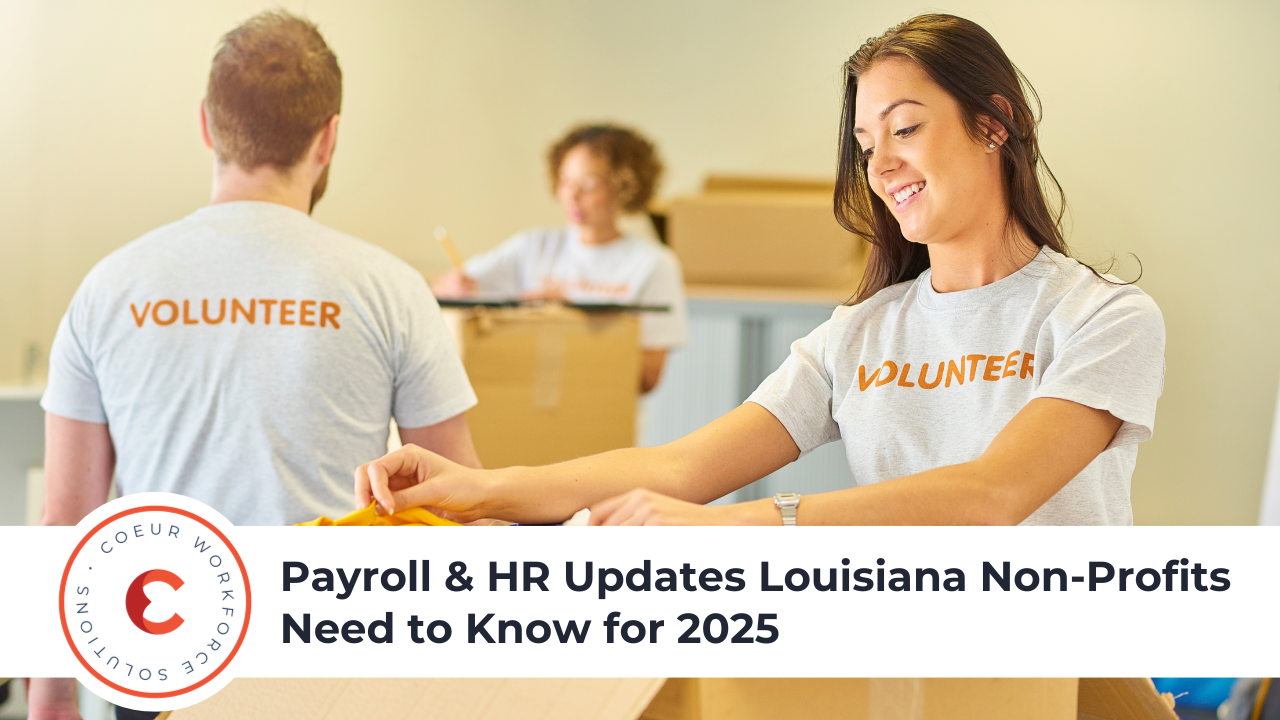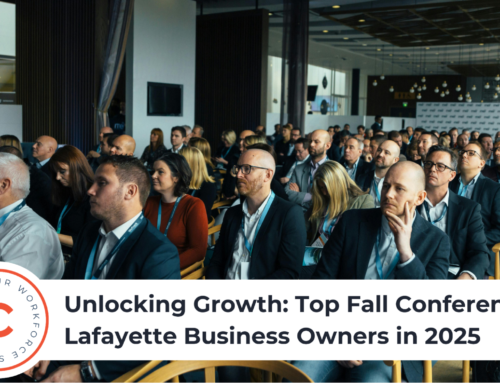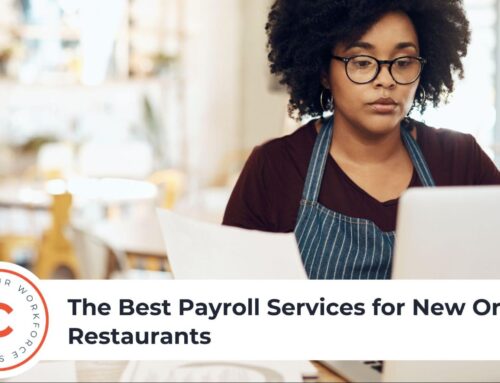Navigating payroll and HR compliance is already complex for non-profits, but staying updated for 2025 is critical. With limited budgets, reliance on grants, and ever-changing regulations, non-profit leaders must prepare to address key updates in payroll and HR compliance to protect their organizations and employees. From wage laws to employee classification, these changes have significant financial and operational implications.
Here are the essential updates Louisiana non-profits need to know, helping you plan ahead and remain compliant while continuing to focus on your mission.
1. HR Compliance Updates for 2025
Employee Classification: Full-Time vs. Independent Contractors
Accurate employee classification remains a top priority for compliance in 2025. Misclassifying workers as independent contractors instead of full-time employees can result in legal and financial consequences, including back pay, fines, and audits. The Department of Labor (DOL) is tightening regulations, emphasizing the economic realities of work arrangements. Non-profits that rely on contract workers for flexible staffing should evaluate roles and ensure they meet criteria for independent contractors. Clear job descriptions and contracts can help mitigate risks.
Diversity, Equity, and Inclusion (DEI) Reporting
As social responsibility continues to play a significant role in organizational culture, DEI reporting is becoming a focal point for compliance. Non-profits, known for their mission-driven goals, are uniquely positioned to lead by example. In 2025, non-profits may face state or federal requirements to document and disclose efforts in hiring, retention, and workplace equity. Implementing transparent DEI initiatives not only ensures compliance but also strengthens community trust and attracts mission-aligned talent.
Paid Leave Mandates
Paid leave policies are evolving across federal and state levels, with new requirements expected in 2025. These changes may include expanded sick leave, family leave, or parental leave coverage. Non-profits need to align their policies with these mandates to maintain compliance and competitive retention strategies. Reviewing leave structures now ensures readiness for any legislative shifts.
2. Payroll Updates Non-Profits Must Address
Amendments to Louisiana’s Noncompete Statute
Effective January 1, 2025, Louisiana has revised its noncompete laws. Non-profits utilizing noncompete clauses in employment agreements must review and update these contracts to ensure they comply with the new legal standards.
Changes to Final Wage Payment Rules
As of August 1, 2024, Louisiana amended its final wage payment laws to include incentive pay, bonuses, and commissions. Employers are now required to consider these forms of compensation as amounts due upon an employee’s separation, provided they have been earned and are not modified by a written policy.
Minimum Wage Changes
Louisiana does not have a state-specific minimum wage, so federal requirements apply. The federal minimum wage remains $7.25/hour, but non-profits with employees across multiple states must monitor state-specific changes and adjust payroll budgets accordingly.
Overtime Pay Adjustments
The FLSA’s overtime salary thresholds have reverted to $684 per week (or $35,568 annually) following a recent court decision vacating the planned increases. Non-profits relying on salaried positions should note that:
- Current Threshold: $684 per week
- Highly Compensated Employees: $107,432 annually
The DOL has appealed this decision, but as of now, the 2019 salary levels remain in place. Reassess exempt employee salaries and overtime costs to avoid compliance issues.
Social Security Wage Base Increase
Starting January 1, 2025, the maximum earnings subject to Social Security tax will increase to $176,100 (up from $168,600). This impacts both employees and employers, as the combined tax rate of 7.65% (Social Security: 6.2%; Medicare: 1.45%) remains unchanged.
IRS Filing Deadlines
Changes in IRS requirements, including new deadlines or processes for forms like W-2s and 1099s, can create challenges. Non-profits must streamline payroll operations to meet these updates while maintaining accurate reporting, particularly for grant-funded or part-time employees.
Ready to Transform Your HR and Payroll for Your Nonprofit? Let’s Talk!
3. Technology and Automation Trends
As the HR and payroll landscape becomes increasingly complex, technology continues to play a critical role in improving efficiency, accuracy, and compliance. For non-profits, investing in Human Capital Management (HCM) systems is no longer optional—it’s a strategic necessity.
Streamlining Payroll Processes
Automation reduces the time spent managing payroll tasks, ensuring compliance with tax filings, wage calculations, and state and federal regulations. For non-profits juggling multiple grants, funding sources, and part-time employees, automated payroll systems simplify tracking and reporting for better oversight.
Enhanced HR Management Tools
Modern HR software centralizes employee records, onboarding, and compliance tracking, saving organizations from administrative headaches. Tools that monitor employee time, overtime, and leave policies can also help non-profits navigate evolving HR regulations while staying organized. Additionally, HCM systems make annual reporting and audits much easier to manage.
The Rise of AI-Driven Solutions
Artificial intelligence is beginning to reshape payroll and HR tasks, offering solutions like predictive analytics for staffing, automated compliance checks, and personalized employee engagement tools. Non-profits can leverage these technologies to reduce administrative burdens and redirect time and resources back to their mission-driven initiatives.
4. Specific Considerations for Non-Profits
Non-profits face unique payroll and HR challenges, particularly when balancing compliance with limited budgets and resources.
Managing Grant-Funded Employees
Non-profits often rely on grants to fund specific roles. Organizations must carefully allocate payroll expenses to comply with grant requirements and avoid misuse of funds. Detailed payroll reporting systems are essential for maintaining transparency and accountability with funders.
Compliance with Volunteer and Stipended Workers
 While volunteers may not receive traditional wages, stipends or reimbursements must be handled correctly to avoid classification issues. Missteps could jeopardize tax-exempt status or trigger audits. Non-profits should clearly document volunteer agreements and ensure compliance with labor laws.
While volunteers may not receive traditional wages, stipends or reimbursements must be handled correctly to avoid classification issues. Missteps could jeopardize tax-exempt status or trigger audits. Non-profits should clearly document volunteer agreements and ensure compliance with labor laws.
IRS Payroll Tax Obligations
Tax-exempt status doesn’t exempt non-profits from payroll tax obligations. Employee income tax withholding, Social Security, and Medicare taxes must still be managed correctly. Organizations should stay vigilant to meet deadlines for filings like Form 941 or 990 to maintain good standing with the IRS.
5. Actionable Steps for Non-Profits
To prepare for 2025, non-profits should take the following steps:
- Conduct an Internal Payroll and HR Audit
Review employee classifications, wage compliance, and leave policies to identify areas that may require adjustments. - Invest in Modern Payroll and HR Solutions
Implement HCM systems to streamline payroll processes, automate reporting, and ensure compliance. - Seek Professional Guidance
Partnering with an experienced Human Capital Management firm, like Coeur Workforce Solutions, can help non-profits navigate payroll complexities and stay updated on changing regulations.
Conclusion
Payroll and HR compliance are critical to non-profit success in 2025. By staying informed on wage laws, overtime rules, employee classification, and emerging HR technology trends, non-profits can manage their workforce more effectively while staying true to their mission. Coeur Workforce Solutions is here to support non-profits with tailored guidance, ensuring you’re prepared for the road ahead.
Contact Coeur Workforce Solutions for expert support in managing payroll, compliance, and HR processes tailored to non-profits.






